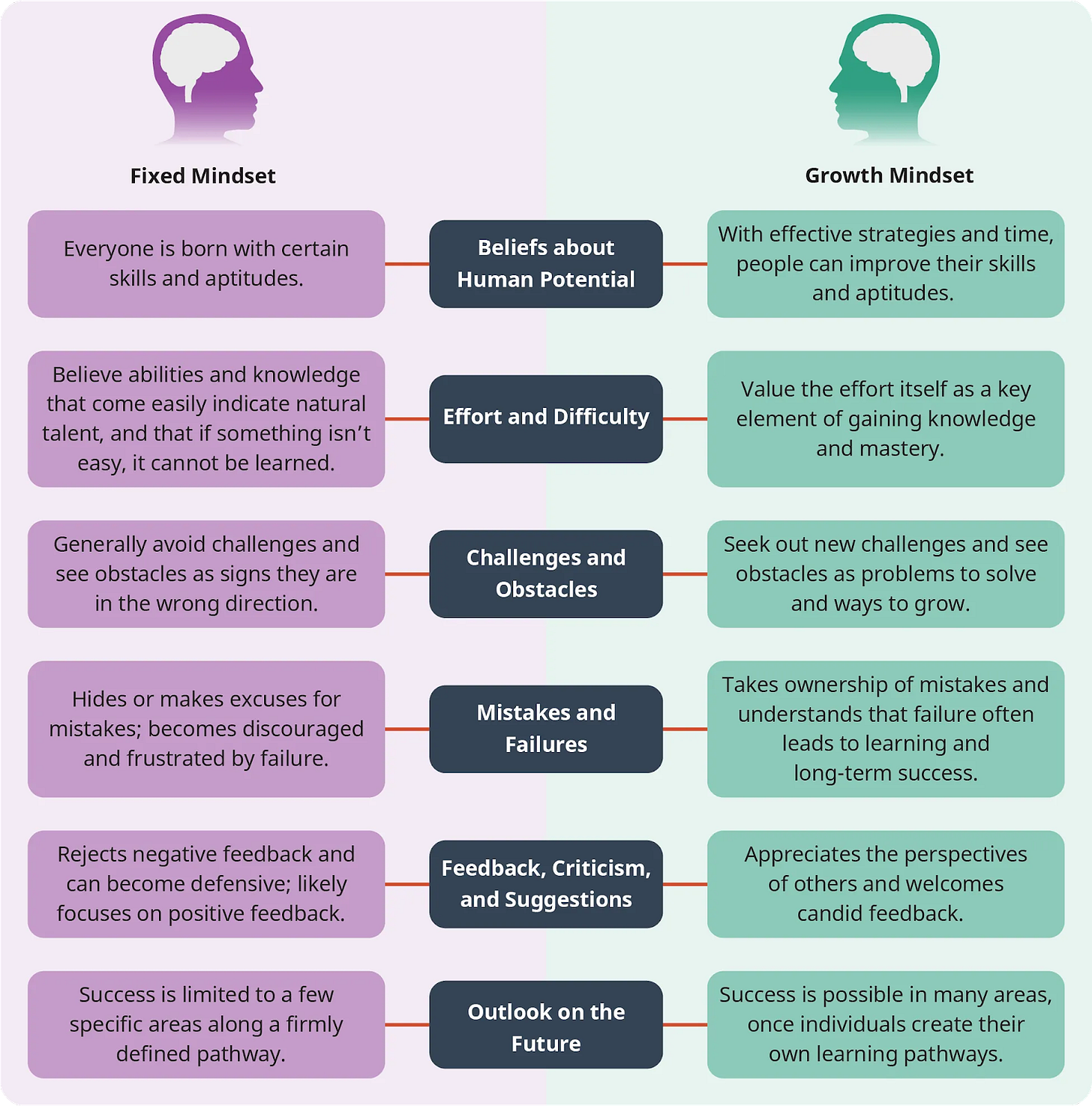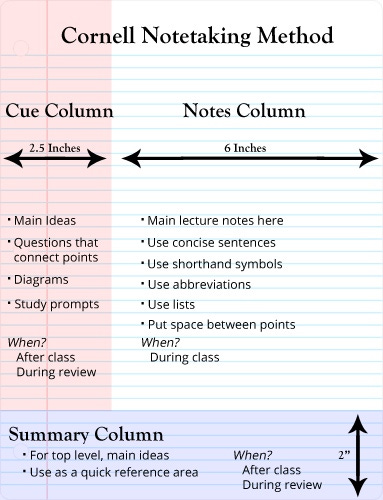4 Expert-Proven Techniques for Studying Effectively
The psychology of learning and proven methods for crushing your exams.
Upon entering high school and college, students receive the privilege of exercising more freedom, both inside and outside of the classroom. This is especially the case as instructors gradually teach pupils the importance of learning effective study and time management techniques so they enter their post-secondary journey with as much self-reliance as possible. As many students may discover, however, freedom has its drawbacks. Though there are limitless opportunities out there for you to pursue, that also entertains the question, "Which ones should I take seriously? Where do I go from here?"
When students find themselves falling behind in some of their courses, they may wonder if they’re not studying long enough, not studying the right material, or if they just don’t have the ability to perform well. Of course, there’s also the question of procrastination, motivation, and simple test-taking nerves. At this point, though, many students feel that their study techniques are good enough to hit the mark, mistakenly ignoring the possibility that they may not be effective enough to commit the information to long-term memory.
“If you're not making mistakes, then you're not making decisions.” - Catherine Cook
1. Breaking it Down
Learning is the process of transferring the information you’re interacting with from your conscious or working memory to your long-term memory. Generally speaking, your ability to learn this information effectively depends on your brain’s innate capacity for storing it as well as the amount you’re attempting to take in at any given time. In other words, one thing to keep in mind as you’re sitting down for a study session is that you should break the information down into sections rather than trying to absorb all of it at once. Your brain is pretty powerful, but that doesn’t mean you can memorize the entire script of Shakespeare’s Macbeth in half an hour (trust me, don’t try it).
2. Active Recall
I’m sure you’ve heard of active recall, the technique where you actively engage with the content you’re learning rather than passively taking it in. The reason why active recall is so effective is because it allows for more stimulation of the neural pathways associated with the encoding and retrieval processes in your brain. Because you’re more deliberately interacting with the information, the neurons that are associated with encoding (learning) and retrieving (remembering) it can fire again more easily in the future. This means that rather than simply re-reading textbook sections over and over, annotate them by asking probing questions, quiz yourself on the previous section, or write a summary of them after taking a five-minute break.
3. The Growth Mindset
Some people possess the mistaken idea that their intelligence or ability to learn is fixed, or unchanging, as life goes on. Researchers have found that grit, a person’s ability to exert determination and perseverance through challenges, is one of the most accurate predictors of academic success and achievement, ahead of even a person’s IQ.
So, how does one "exercise" their grit? Psychologists say that a shift in mindset is the first step. Start viewing the end goal of a task as the only acceptable outcome. This way, you’re forced to accept the failures you encounter on the way there as stepping stones to your goal, aligning with the common phrase "mistakes are opportunities to learn." This concept is commonly referred to as the growth mindset, and is tantamount to adapting to your knowledge rather than vice versa.
4. Finding Purpose
There is nothing more bland and uninteresting than learning a subject that you have no interest in, especially if it doesn’t align with your long-term goals. This is one of the reasons why it’s vital to develop a list of your personal values and to make your decisions according to their compatibility. Sometimes, though, it isn’t possible to transfer out of a class, whether it’s because it’s required for your degree path or something else.
One such example of a student in this situation may be a prospective nurse enrolled in an algebra course. At first, the class may seem completely unrelated to their career goals, and they may consider dropping the class simply because the motivation isn’t there. However, looking deeper, the student can recognize the importance of algebra in calculating drug dosages and how any error in those calculations can risk the patient’s safety during and after treatment. Suddenly, the student is instilled with a fresh sense of purpose and determination.
Consider re-evaluating why you’re taking a course you don’t have any motivation for. Sure, it may not have any significance now, but looking two, five, or even ten years into the future, will you be in a better place to satisfy your goals? The answer to this question can give you the energy and grit you need to learn the content with more vigor and focus.
Other Study Tips
Use The Cornell Method - Many students (including myself) swear by the Cornell method. The reason why it works so well is that it enables the use of active recall and promotes more organizational note-taking. This way, it’s much easier to review them later. The method involves splitting a page into three sections: the key points, notes, and summary section. Summarize the notes section in 2-3 sentences. Then, occasionally quiz yourself over the key points outlined in the recall column to test your understanding. Any time you may hesitate during answering or struggle to think of a concrete answer, that’s your queue to review that section.
Take Notes in Your Own Words - Don’t just copy down the instructor’s words verbatim. Not only does this reduce the likelihood of the information transferring to your long-term memory, but it can also take too much time and effort, especially during a lecture. The reason why this works is because you are actively engaging with the material, which involves forming a deeper understanding with the information, and therefore reinforcing the neural pathways associated with recalling it.
Take Notes by Hand - There’s plenty of research to back up the claim that taking notes by hand correlates with higher likelihood of information retention versus typing. Because the tactile sensations of writing on a surface plays a role in this process, even note-taking tablets may not have as profound of an effect. If you’re eco-conscious, I’d recommend using Rocketbook.
Too long? Here’s a bite-sized summary:
As you embark on your high school and college journey, you'll encounter more freedom both inside and outside the classroom. However, with this newfound independence comes a set of challenges. You might wonder which opportunities to take seriously and where to focus your efforts. When you find yourself struggling in your studies, it's easy to question if you're studying enough, studying the right material, or even if you have what it takes to succeed. Procrastination, motivation, and test-taking anxiety may also haunt you.
Break it Down: Learning involves transferring information from your working memory to your long-term memory. It's crucial to realize that you can't absorb everything at once. Instead, break the information into manageable sections to enhance your understanding.
Use Active Recall: Instead of passively reading, engage actively with the material. Ask yourself questions, quiz yourself, or summarize what you've learned. This approach stimulates the neural pathways responsible for encoding and retrieval, making it easier to remember information.
Adopt the Growth Mindset: Your determination and perseverance, known as grit, play a more significant role in academic success than your IQ. Cultivate a growth mindset, viewing challenges as opportunities to learn and grow, and focus on the end goal.
Find Purpose: Sometimes, you'll encounter courses that seem irrelevant to your goals. However, if you dig deeper, you may discover their importance. Align your studies with your values and long-term objectives. Even seemingly unrelated subjects can have a profound impact on your future.




